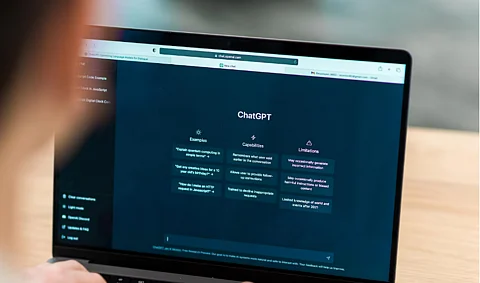

AI chatbots have started to claim a noticeable share of desktop search activity. According to a recent study, approximately 5.6% of all search traffic on desktop browsers now passes through AI-powered chatbots. This shift highlights a growing user preference for direct, conversational responses over traditional search engine result pages.
Tools like ChatGPT and Perplexity are increasingly being used as go-to sources for quick, easy-to-understand information. Their ability to deliver concise and context-aware answers is making them a popular alternative to conventional search methods, especially for users seeking efficiency and clarity.
Remember when chatbots were only for simple customer service? Well, they've become a lot smarter. Now, they can understand and answer some pretty complex questions. These AI models can now do things like write for you, help with coding, do research, and even help you learn new things.
This evolution has led to a significant traffic surge, especially in productivity and research-related queries. People started using chatbots to test them out for quick facts and information. As they became so successful, people began to trust them. Now, more people are turning to AI chatbots for information instead of manually searching through numerous links.
Also Read: Future of Smart Glasses: Beyond Displaying Information
It may be because of its ease. With regular search engines, you get a huge list of links, and you have to click around and dig through different sites to find what you want. However, chatbots provide a summary right away, which saves a significant amount of time.
Another thing is that they sound more human. You can type questions as if you're talking to a person, and the chatbot responds in a clear, conversational manner. It makes information easier to get, even if you're not an expert at researching.
The increase in AI chatbot Usage reflects a shift in how users prefer to interact with digital tools. Additionally, AI tools often provide real-time information, assist with coding, check grammar, and explain complex concepts. You get so much more in one place than you do with normal search results.
Currently, ChatGPT and Perplexity are significant players that are changing our habits. ChatGPT can engage in whole conversations with you, write well-structured content, and answer additional questions after the initial one.
Perplexity combines a chatbot with live internet access to find the newest, most relevant info. Another thing it does is it shows where its information came from, which is great for research.
The fact that people are using them so much indicates that they are trusting AI to provide accurate and reliable information. Now, 5.6% of the search traffic might not seem like much, but it's growing quickly. If this trend continues, it could significantly alter how search engines operate.
According to analysts, Desktop Search trends 2025 indicate rising demand for intelligent, voice-assisted query solutions. Search engines, such as Google, are already adapting by launching their own AI helpers, similar to Gemini. Microsoft is also putting AI tools into its Bing search engine. They want to keep people from switching to chatbots.
The way ads work will also change because fewer people will click on ads in search results if they're using AI. Although this is beneficial, some issues remain. Sometimes, AI chatbots give wrong or outdated information. If you don't double-check, you might believe something that isn't even real.
Another thing is that they are not very clear about where they get their information. Unlike search engines that show you the sources, chatbots don’t always tell you where they got the answer. This makes it difficult to determine if the response is adequate.
To maintain people's trust, companies creating these tools must focus on making them more accurate, transparent, and capable of providing real-time access to proven information. As more people start using AI to discuss the tools, the ways people find information will become more interactive and tailored to their needs.
New AI models are being trained to better understand what people want and provide answers with more context. These tools become so competent, quick, and trustworthy that they may even surpass search engines for specific tasks.
Tech companies are also trying to find some unique solutions that combine chatbots with regular web search, so you get the best of both worlds.
The rise of AI chatbots represents a significant shift in how we access information. They already have 5.6% of desktop search traffic. It is a considerable advancement, and they are already being widely used.
If people keep coming up with new ideas and being responsible, then you can only imagine where AI is going to find itself in the future. But for now, it’s pretty clear: AI chatbots are not just helpers - they’re becoming critical digital workers.
